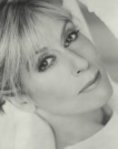What better way to celebrate Mother’s Day than by talking about the Tony nominees, right?
Well, okay, brunch or flowers or even just doing the dishes might be a better option. But, those filial duties performed, I wanted to talk about the fantastic Judith Light in “The Assembled Parties” as part of my commentary on the Tonys. Light’s up for best featured actress in a play in this year’s Tonys for playing a mother herself – one whose conflicted relationship with her daughter, her husband and her sister-in-law inform quite a lot of the action. (To be fair, I also think Jessica Hecht, who plays the sister-in-law in question, should have been nominated for best actress; her own character’s expression of motherhood is simultaneously hopeful, loving, blind, driving, forceful and world-changing.)
Light plays Faye, sister of Ben, wife of Mort, mother of Shelley, sister-in-law of Julie. She is, in other words, a woman defined by her relationships with others. Her brother Ben is something of the family golden child, his marriage to the beautiful and gifted Julie (she was a movie star before her their wedding) the sort of shining match that prompts satisfied head nods from parents everywhere. Faye’s own match with Mort was less planned – a night of hasty sex and an unplanned pregnancy later, the two were wed. Even the children of these marriages reflect these differences, with Ben and Julie the parents of a pair of articulate, charming sons and Faye and Mort the parents of the unambitious, underachieving Shelley.
And yet Faye is, ultimately, the character who grows the most over time, whose transformation (helped by Julie’s own brand of selflessness and obliviousness, generosity and entitlement) opens the play to further possibility. I was lucky enough to see Light last year in “Other Desert Cities,” where she gave a bracing performance as an alcoholic aunt goading her niece into delving into family secrets. Here, her character shares some of that same bitterness, but Light takes the character in a completely different direction.
And yet – there is still Shelley. This is a Mother’s Day post, after all, so let’s not forget that Faye’s relationship with Shelley is also part of her character. I admit, when I saw the play a few weeks ago, I found Shelley the most puzzling character. I wasn’t entirely sure what necessity there was for this character, what she brought to the story as a whole, particularly since her presence in the second act is so limited. But the more I think about this, the more I think that it’s not just Shelley who matters, but her relationships with the other characters, and especially her mother.
This is a play about relationships, after all. No one is defined in isolation. I’m usually the first to bitch when female characters are defined by being wives and mothers instead of being themselves, but in this case, the men are defined in much the same way (and really, it’s the unexpected and revelatory relationship between Julie and Faye that takes the spotlight). So Faye’s relationship with Shelley matters – and it matters because it says something about motherhood in general and Faye’s brand of motherhood in particular. It says something about constructed notions of family, about who we choose to surround ourselves with and how we treat them.
Faye is something of a failure as a mother. She and Shelley are a bad match as a mother and daughter. Does love redeem that? The warm and fuzzy answer is yes; the realistic answer is… well, who knows what that is. They play doesn’t tell us, either. Faye doesn’t know and maybe she doesn’t even ask herself the question. Will Shelley ever be any better as a mother? We don’t learn much about the man she presumably spends her life with. He’s a voice in the background – it’s the women’s relationships that are primary here, even when they’re failures.
This could have been a really clunky role in less skilled hands – choppy and awkward and unbelievable. It’s to Light’s great credit that Faye’s evolution feels both so natural and yet so surprising. I hope the Tony voters reward the empathy and skill and steeliness that Light brings to the stage.
